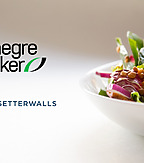Artikel | 8 maj 2015
Sober decision from the Swedish Market Court on wine marketing

The Swedish Market Court has found that direct marketing for alcoholic beverages is permitted under certain circumstances. The Swedish Consumer Ombudsman’s guidelines on marketing for alcoholic beverages will have to be revised. Direct marketing which allows the consumer to decide whether or not to be exposed to its content is now allowed.
Background
The Wine Company Hawesko GmbH is based in Hamburg, Germany and offers Swedish consumers to purchase and import wine from its business in Hamburg. The practice of private imports from other EU Member States has been permitted since 2008 due to a ruling by the European Court of Justice (Rosengren C-170/04). The Wine Company has marketed its service via direct mail to consumers in Sweden. The Consumer Ombudsman (“CO”) took the position that this is in violation of the marketing rules in the Swedish Alcohol Act. Marketing must be moderate and not intrusive, seek the consumer out or encourage consumption of alcohol. The CO has issued guidelines on the interpretation of these rules. Direct marketing addressed to consumers has in accordance with these rules been held unlawful unless the consumer has expressly requested such marketing. This was not the case here. The CO brought the case to the Market Court which now has rendered its decision.
Not what the CO expected or wanted
The Court finds that the marketing could not be held to violate the demand for moderation. Nor could it be said to be intrusive. Furthermore, the Court states what one might think was a given, namely that most marketing seeks the consumer out.
Basically, it comes down to if the consumer can choose whether to be exposed to the marketing content or not and that the content is in accordance with the requirements of moderation in the legislation. If so, the marketing is okay.
In this case the Wine Company had directed the marketing to persons over the age of 25 to whom marketing is allowed. The marketing was sent in envelopes from which it was clear that it contained alcohol marketing. The recipient could thus choose whether or not to open the envelope and partake of the content. This approach could not as such be held to violate the legislation. It could not be seen as contributing to maintaining or increasing the use of alcohol.
Finally, the content of the envelope could not be considered to violate the requirement for moderation in text or depictions. Even the friendly tone in the mailing “do you sometimes enjoy a glass of wine at home?” or “choose your wines in peace and quiet” was accepted.
The Court’s reasoning is with the times
The interpretation of requirement for special moderation has to be based on its purpose; namely to protect public health. To maintain its legitimacy, the assessment has to be current and follow the developments in society’s views on this. In this assessment, the traders’ interest in being able to market their product and the consumers’ interest in getting relevant information about these kinds of products has to be acknowledged. This should in turn be balanced against the protection of public health. The Court concludes that the scope for marketing is still limited.
The Court continues that merely the use of a marketing method devised to seek out the consumer is not sufficient. This is the nature of all marketing. Instead, what should be considered is if the marketing is such that it may jeopardize the protection of public health. Decisive is how the marketing can be expected to be construed by the consumers to whom it is directed. Marketing of alcohol must not be such that it maintains or increase the consumption of alcohol. It must not contribute to a positive attitude these products.
Kontakt:
Verksamhetsområde:


